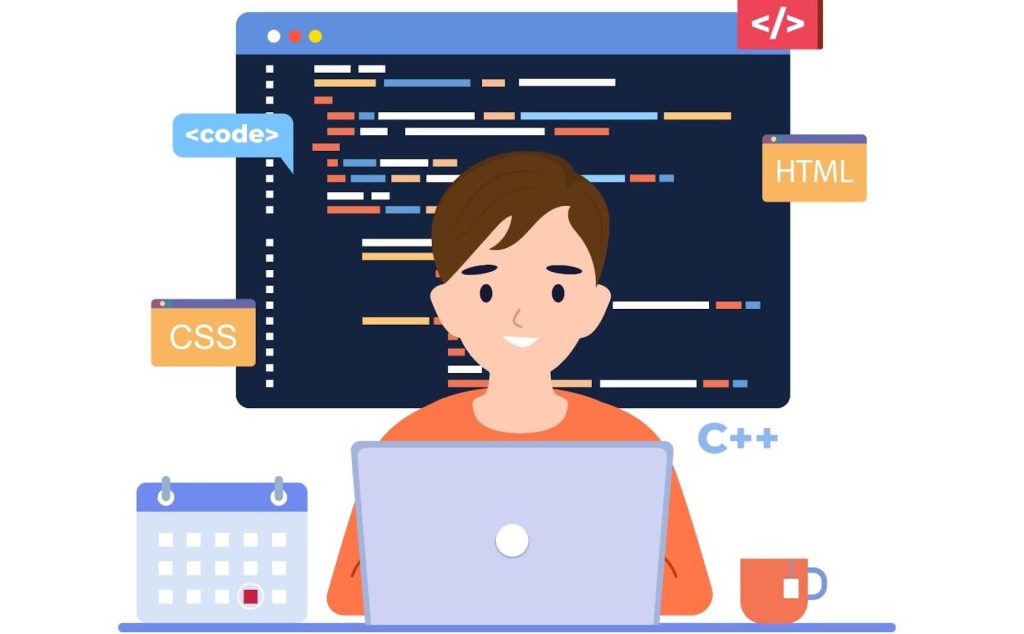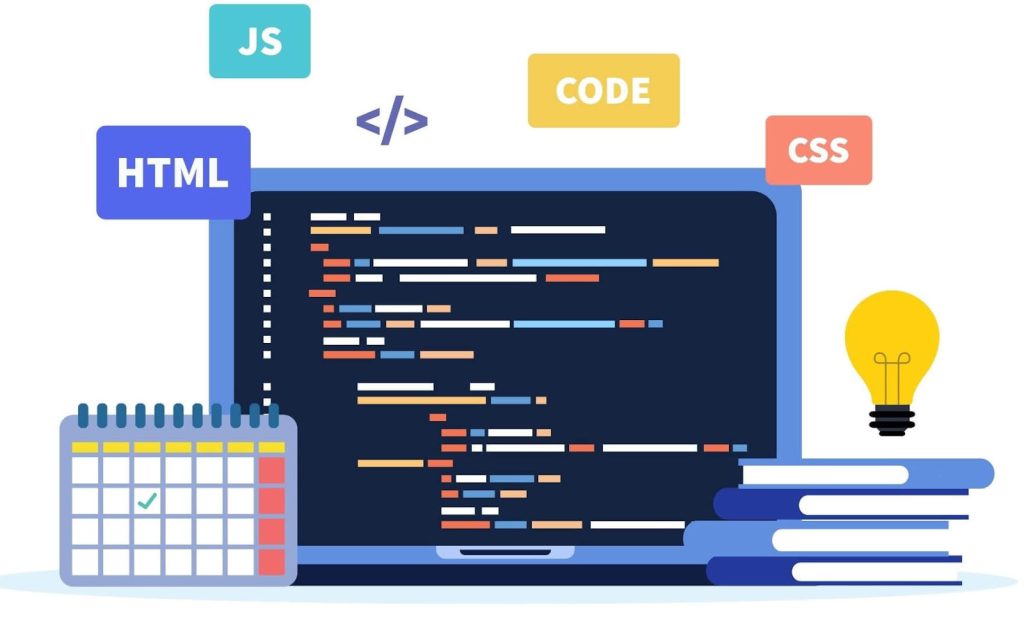
Overview
Junior software developer jobs are entry-level roles that involve writing, debugging, and testing code under the supervision of senior developers. These positions provide foundational experience and exposure to real-world software projects.
They serve as a critical stepping stone for building a successful career in software development and the broader tech industry.
This guide covers:
✅ Key responsibilities and expectations of junior developers
✅ Essential technical and soft skills required
✅ Building a strong portfolio to showcase your abilities
✅ Best job platforms to find junior developer roles in the UK
✅ Tips for CVs, cover letters, and interviews
✅ Career growth pathways from junior to mid-level developer
The demand for software developers continues to grow in the UK, making it an excellent time to launch a career in tech. If you’re looking to break into the industry, junior software developer jobs provide the perfect entry point.
Many aspiring developers wonder, “What skills do I need?”, “How can I get my first job without experience?”, and “What should I expect in a junior developer role?”. In this guide, we’ll explore the key elements you need to land a junior software developer job, including essential skills, job expectations, application tips, and career growth opportunities.
Understanding the Role of a Junior Software Developer
A junior software developer is an entry-level role responsible for coding, debugging, and testing software under the guidance of senior developers. You’ll typically work on small coding tasks, contribute to projects, and learn industry best practices.
Key Responsibilities:
✔ Writing and maintaining clean, efficient code
✔ Debugging and fixing software issues
✔ Collaborating with senior developers, designers, and product teams
✔ Testing applications to ensure functionality and performance
✔ Learning new frameworks, libraries, and tools
💡 Tip: Junior developers are expected to learn quickly, so a willingness to ask questions and seek feedback is essential.
Must-Have Technical Skills for Junior Software Developers
Employers look for candidates with strong technical foundations. While requirements vary, most junior developer jobs require knowledge of:
Programming Languages:
- Python (Popular for web development, data science, and AI)
- JavaScript (Essential for front-end and full-stack roles)
- Java (Used in enterprise applications)
- C# (Common in game development and Microsoft applications)
Web Development Skills:
- HTML & CSS for basic web structure and styling
- JavaScript frameworks like React, Angular, or Vue.js
- Backend frameworks like Node.js, Django, or Spring Boot
Database Management:
- SQL (MySQL, PostgreSQL, SQL Server) for relational databases
- NoSQL (MongoDB, Firebase) for flexible data storage
Version Control & Deployment:
- Git & GitHub/GitLab for code collaboration
- Understanding CI/CD pipelines for software deployment
Software Testing & Debugging:
- Writing unit tests and integration tests
- Using debugging tools like Chrome DevTools or Postman
💡 Tip: If you’re new to coding, start with Python or JavaScript, as they are beginner-friendly and widely used.

Soft Skills That Help You Succeed
Technical expertise is important, but employers also value soft skills that contribute to workplace success.
Important Soft Skills for Junior Developers:
✔ Problem-Solving: Ability to debug code and find creative solutions
✔ Communication: Explaining technical issues clearly to team members
✔ Collaboration: Working effectively with designers, testers, and product managers
✔ Time Management: Meeting deadlines and managing workloads efficiently
✔ Adaptability: Keeping up with evolving technologies and best practices
💡 Tip: Companies love developers who are team players and eager to learn. Show your enthusiasm during interviews!
Building a Strong Portfolio for Job Applications
Most companies hiring junior software developers look for candidates who can demonstrate their skills with real projects. A well-crafted portfolio increases your chances of landing a job.
What to Include in Your Portfolio?
✔ Personal Projects – Build apps, websites, or automation scripts to showcase your coding abilities
✔ Open-Source Contributions – Contribute to GitHub repositories
✔ Technical Blog Posts – Write about coding topics on Medium or Dev.to
✔ Live Demo Links – Host projects on GitHub Pages, Netlify, or Heroku
💡 Tip: Employers don’t expect junior developers to have professional experience, but they do want to see evidence of your coding abilities.
Where to Find Junior Software Developer Jobs
Once you’ve built a strong portfolio, it’s time to start applying for junior software developer jobs.
Best Job Portals for Junior Software Developers in the UK:
🔹 LinkedIn Jobs – Network with recruiters and apply directly
🔹 Indeed UK – Search for junior developer openings in your area
🔹 CWJobs – Specialises in UK tech job listings
🔹 Jobsland – A UK-centric job board for developers
🔹 Stack Overflow Jobs – Find developer roles globally
💡 Tip: Set up job alerts on these platforms to get notified about new openings.

Preparing for the Job Application Process
Once you find a job opening, make sure your application stands out.
Optimising Your CV for Junior Developer Jobs
✔ Keep it one page long
✔ Highlight technical skills and projects
✔ Include links to GitHub, LinkedIn, or portfolio website
✔ Mention relevant coursework, bootcamps, or certifications
Cover Letter Tips
- Explain why you’re passionate about software development
- Mention a coding project you worked on and what you learned
- Tailor it to the company’s mission and values
💡 Tip: Avoid generic applications. Personalise each CV and cover letter to match the job description.
Acing the Junior Developer Interview
Many companies conduct technical and behavioral interviews for junior developer roles.
Common Junior Developer Interview Questions
🔹 Technical Questions:
- How does JavaScript handle asynchronous operations?
- Explain the difference between SQL and NoSQL databases.
- What is object-oriented programming (OOP)?
🔹 Coding Challenges:
- Solve a basic algorithm on LeetCode, HackerRank, or CodeSignal.
- Debug a small piece of code.
🔹 Behavioral Questions:
- Tell us about a time you solved a challenging problem.
- How do you handle feedback on your code?
- Why do you want to work with our team?
💡 Tip: Practice coding challenges daily and be ready to explain your thought process clearly.

Career Growth After Landing Your First Developer Job
Once you get your first junior software developer job, your next goal is to grow your skills and advance in your career.
How to Progress from Junior to Mid-Level Developer?
✔ Learn new programming languages and frameworks
✔ Take on more responsibility in projects
✔ Contribute to open-source projects
✔ Stay updated with new trends in software development
✔ Consider specialising in areas like AI, cloud computing, or DevOps
💡 Tip: The best developers never stop learning. Take online courses and attend developer meetups.
Conclusion
Breaking into tech as a junior software developer is exciting and full of opportunities. By developing technical skills, building a strong portfolio, applying strategically, and preparing for interviews, you can land a great role and start your career in software development.
Recap – Key Takeaways:
✅ Learn coding fundamentals (Python, JavaScript, SQL, Git)
✅ Develop soft skills (communication, problem-solving, teamwork)
✅ Create a portfolio with real projects
✅ Apply on platforms like LinkedIn, Indeed, and Jobsland
✅ Prepare for technical interviews with coding challenges
💡 Ready to start your journey? Build your portfolio, apply for roles, and take your first step into the world of tech today! 🚀